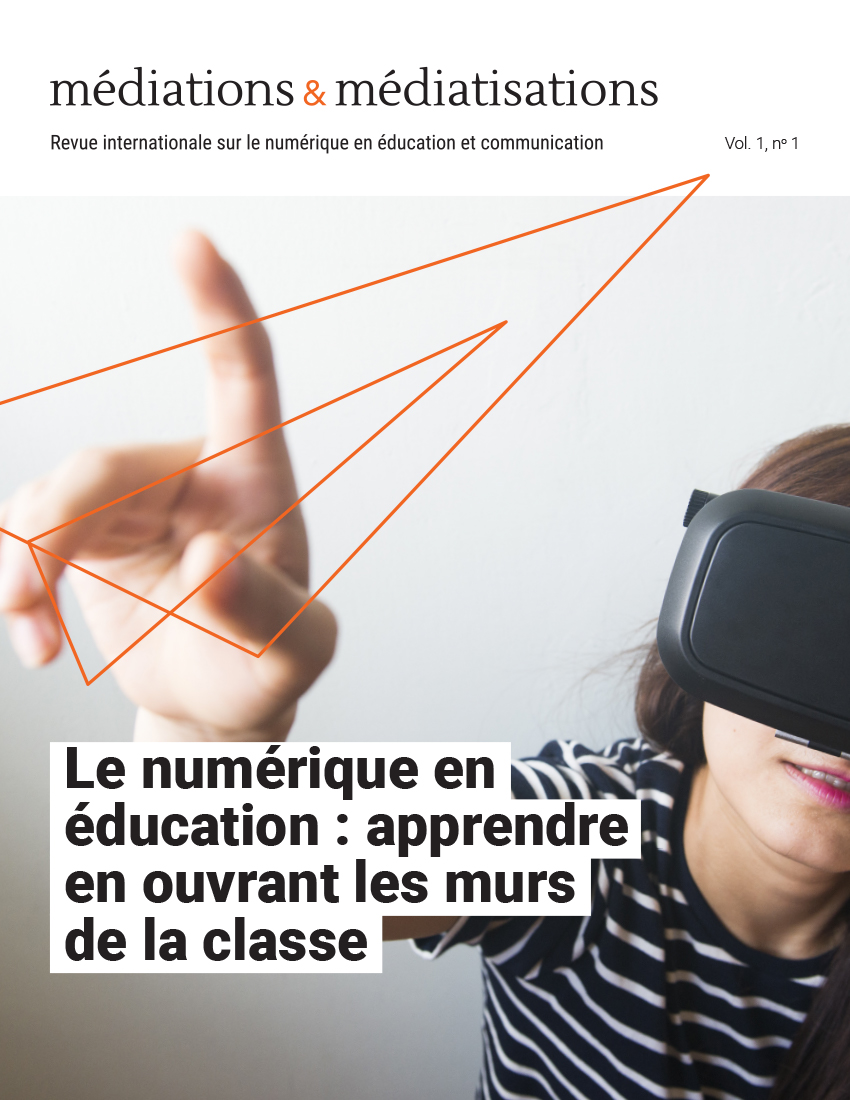Twitter pour apprendre en mathématiques : Quel potentiel et quels enjeux pour l’enseignant et pour le chercheur?
Contenu principal de l'article
Résumé
Bien que l’usage des médias sociaux fasse partie intégrante de notre vie sociale, la fonction principale de cet outil ne semble pas être d’apprendre. En prenant l’exemple particulier de Twitter, on retrouve toutefois des initiatives, encore peu répandues, pour apprendre différemment. Cet article de praticiens comporte deux volets. Dans un premier temps, nous abordons le potentiel de Twitter sous l’angle du développement professionnel (Larsen, 2016; Larsen et Liljedahl, 2017), à la fois pour l’enseignant et pour le chercheur, pour s’informer, réseauter, argumenter, puis développer des compétences numériques (essentielles pour le 21e siècle). Dans un deuxième temps, nous partageons notre expérience d’enseignant et de chercheur afin de dégager le potentiel et les enjeux de Twitter pour apprendre en mathématiques au secondaire. Il sera notamment question d’opportunités pour faire des mathématiques différemment et repousser les limites de la classe, ce qui est d’intérêt à la fois pour l’enseignant et pour le chercheur.
Téléchargements
Renseignements sur l'article
Références
Deschênes, M. (2014). Le web social, un levier de développement professionnel?, Québec, Collège O’Sullivan de Québec. http://iteractive.ca/devpro.
Day, C. (1999). Developing Teachers: The Challenges of Lifelong Learning, Londres: Falmer Press.
Lajoie, C. & Thibault, M. (2017). La mise à contribution de la didactique des mathématiques dans l’enseignement et la recherche. Dans S. El Euch, A. Groleau et G. Samson (dir.), Didactiques, p. 35-54. Presses de l’Université du Québec. https://www.researchgate.net/publication/320106660.
Larsen, J. (2016). Negotiating meaning: A case of teachers discussing mathematical abstraction in the blogosphere, Dans M. B. Wood, E. E. Turner, M. Civil et J. A. Eli (dir.), Actes de colloque du «Annual meeting of Psychology of Mathematics Education – North American Chapter (PME-NA)», p. 331-338, Tucson, https://www.researchgate.net/publication/303565444.
Larsen, J. & Liljedahl, P. (2017). Exploring generative moments of interaction between mathematics teachers on social media, Actes de colloque du «Annual meeting of Psychology of Mathematics Education (PME)», Umea. https://www.researchgate.net/publication/316994276.
Lieberman, A. & Miller, L. (dir.). (2001). Teachers caught in the action: Professional development that matters, New York: Teachers College Press.
Rutherford, C. (2010). Facebook as a source of informal teacher professional development. Education, in education, 16(1). http://ineducation.ca/ineducation/article/view/76.
Mocquet, B. (2016). L’usage du micro-blogging Twitter dans l’enseignement supérieur et la recherche. Enquête sur l’usage du numérique dans l’enseignement supérieur, https://hal.archives-ouvertes.fr/hal-01291710.
Shulman, L. S. (1987). Knowledge and teaching: Foundations of the new reform. Harvard Educational Review, 57(1), 1- 22. http://hepgjournals.org/doi/abs/10.17763/haer.57.1.j463w79r56455411?code=hepg-site.
Thibault, M. (2017). Du changement en évaluation! Revue Envol (GRMS), Édition spéciale, p. 6-7. https://www.researchgate.net/publication/318858961.
Thibault, M. & Venant, F. (2017). Twitter pour apprendre : quel potentiel pour l’enseignant et pour le chercheur? Quelques exemples en mathématiques. Actes de colloque de la Communauté pour l'innovation et la recherche sur les technologies dans l'enseignement/apprentissage, p. 181-186. https://www.researchgate.net/publication/324454505.

